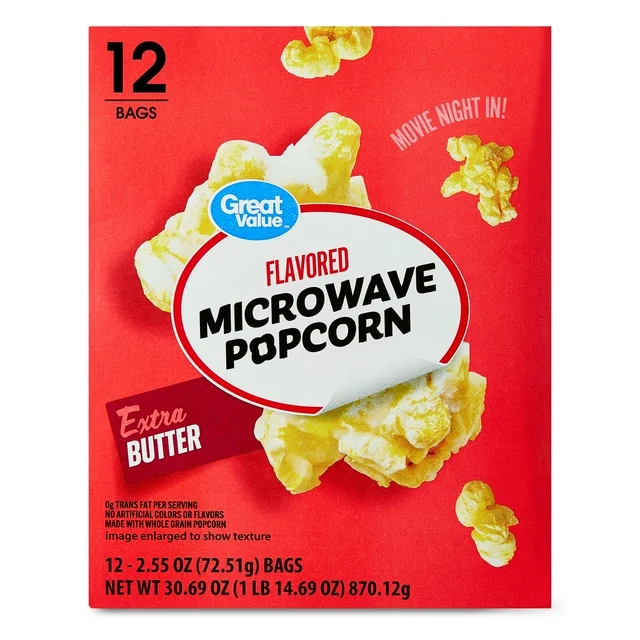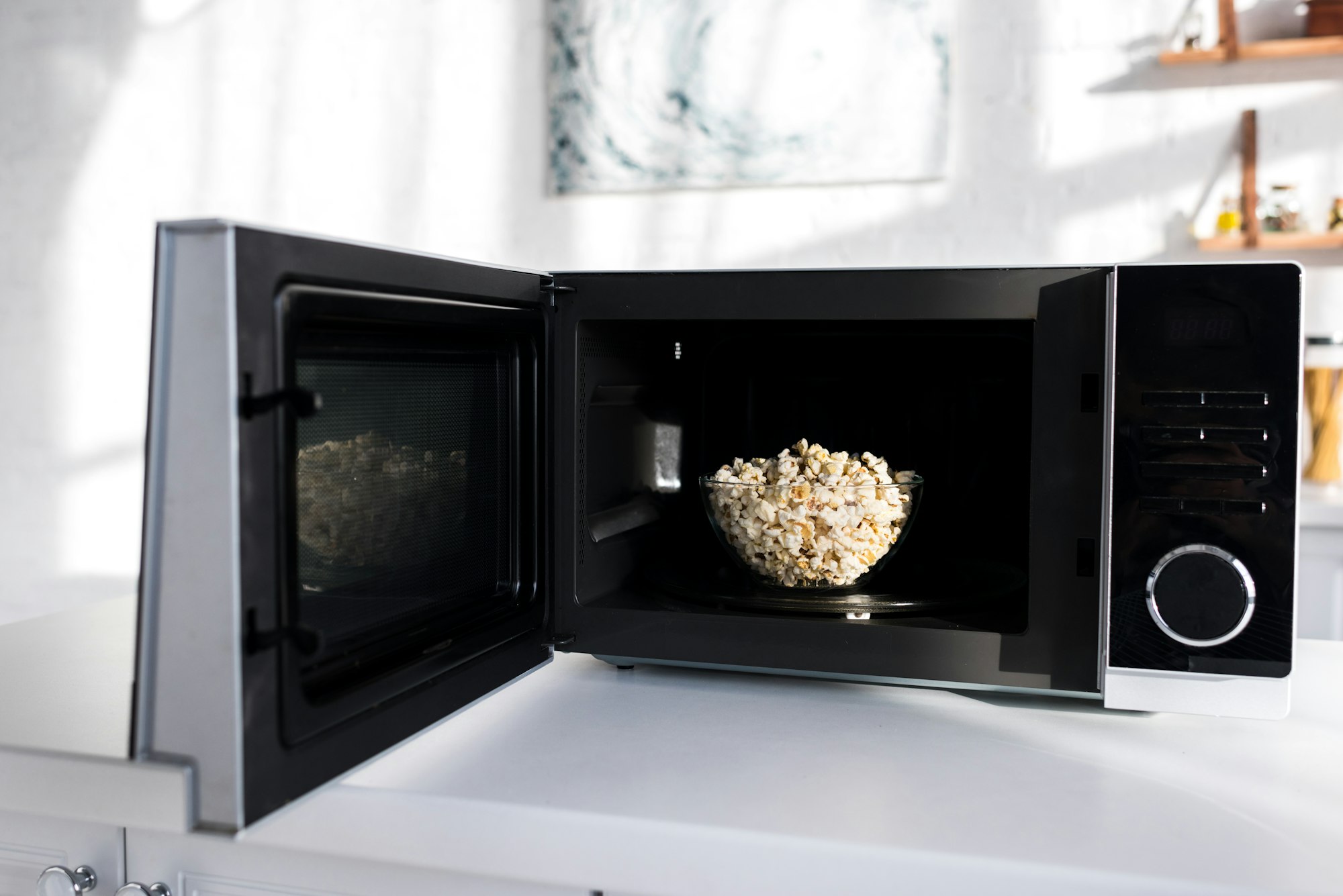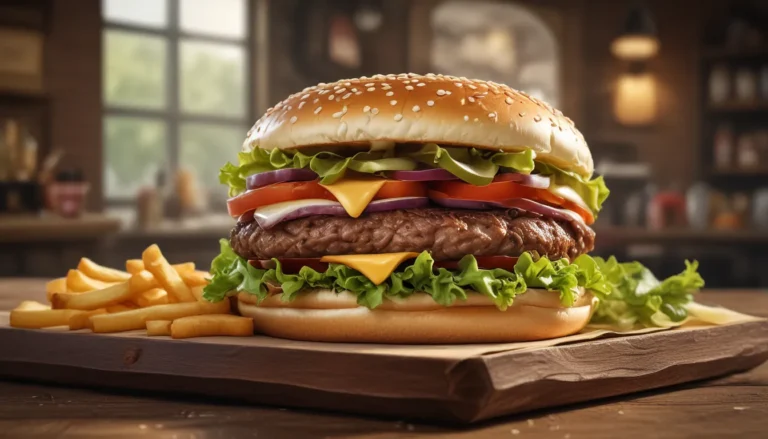The pictures in our articles might not always show exactly what the text is talking about. We use these images to make the article more interesting and eye-catching. They are there to add to the text, but not to replace it or show every detail.
Microwave popcorn has become a beloved snack for many, offering convenience, delicious flavors, and a satisfying crunch. Whether you're enjoying a movie night at home or need a quick pick-me-up at work, microwave popcorn is a versatile and tasty option. But have you ever wondered about the nutritional value of this popular snack? In this comprehensive guide, we'll explore microwave popcorn nutrition facts to help you make informed choices about your snacking habits.
The Basics of Microwave Popcorn
Before we dive into the nutrition facts, let's take a quick look at what makes microwave popcorn such a popular snack:
Now, let's explore the nutritional aspects of this beloved snack.
Microwave Popcorn Nutrition Facts: Breaking It Down

To understand the nutritional value of microwave popcorn, we'll use a typical serving size of 2 tablespoons (35g) of unpopped kernels, which makes about 5 cups of popped popcorn. Keep in mind that these values may vary slightly depending on the brand and flavor.
1. Calories
A serving of microwave popcorn contains approximately 180 calories. This makes it a relatively low-calorie snack option compared to many other processed snacks.
2. Fat Content
- Total Fat: 11g (14% of Daily Value)
- Saturated Fat: 6g (30% of Daily Value)
- Trans Fat: 0g
- Polyunsaturated Fat: 1.5g
- Monounsaturated Fat: 4g
The fat content in microwave popcorn primarily comes from the added oils and butter flavorings. Opting for "light" or "low-fat" versions can significantly reduce these numbers.
3. Carbohydrates
- Total Carbohydrates: 17g (6% of Daily Value)
- Dietary Fiber: 0g
- Sugars: 0g
Popcorn is primarily a carbohydrate-based snack. The lack of fiber in this nutrition label is surprising, as popcorn is generally a good source of fiber. This may vary between brands.
4. Protein
2g of protein per serving.
While not a significant source of protein, popcorn does provide a small amount.
5. Sodium
300mg (13% of Daily Value)
The sodium content can vary greatly depending on the flavor and brand. Some varieties may have significantly higher sodium levels.
6. Vitamins and Minerals
- Calcium: 0mg (0% DV)
- Iron: 0.5mg (2% DV)
- Potassium: 0mg (0% DV)
- Vitamin D: 0mcg (0% DV)
Microwave popcorn is not a significant source of vitamins and minerals, but it does provide a small amount of iron.
Understanding the Nutritional Impact
Now that we've broken down the numbers, let's discuss what they mean for your diet:
1. Calorie Content
At 180 calories per serving, microwave popcorn can be a satisfying snack without breaking your calorie bank. However, be mindful of portion sizes, as it's easy to consume multiple servings in one sitting.
2. Fat Considerations
The fat content in microwave popcorn is notable, especially the saturated fat. While some fat is necessary in our diets, it's important to consume saturated fats in moderation. If you're watching your fat intake, look for "light" or "low-fat" options.
3. Carbohydrate Content
The carbohydrates in popcorn provide quick energy. However, the lack of fiber in this particular nutrition label is unusual for popcorn. Generally, popcorn is a good source of fiber, which aids digestion and promotes feelings of fullness.
4. Sodium Levels
With 300mg of sodium per serving, microwave popcorn can contribute significantly to your daily sodium intake. If you're on a low-sodium diet, be cautious with your consumption or look for low-sodium varieties.
5. Protein and Micronutrients
While not a significant source of protein or micronutrients, popcorn can still contribute to your overall nutrient intake when consumed as part of a balanced diet.
The Benefits of Microwave Popcorn
Despite some nutritional concerns, microwave popcorn does offer several benefits:
1. Whole Grain Goodness
Popcorn is a whole grain, which means it contains all parts of the grain kernel. Whole grains are an important part of a healthy diet.
2. Low-Calorie Option
Compared to many other snack foods, microwave popcorn is relatively low in calories, making it a good choice for weight management.
3. Versatility
Microwave popcorn comes in a variety of flavors, from classic butter to more exotic options, catering to different taste preferences.
4. Convenience
The ease of preparation makes microwave popcorn a convenient snack option for busy lifestyles.
5. Gluten-Free
For those with gluten sensitivities, most microwave popcorn is naturally gluten-free (always check the label to be sure).
Making Healthier Choices with Microwave Popcorn
If you enjoy microwave popcorn but want to make it a healthier part of your diet, consider these tips:
- Portion Control: Stick to the recommended serving size to keep calorie and fat intake in check.
- Choose Lighter Options: Look for "light" or "low-fat" varieties that have less added oil and butter flavoring.
- Check Sodium Content: If you're watching your sodium intake, opt for low-sodium or unsalted versions.
- DIY Flavoring: Buy plain microwave popcorn and add your own seasonings for a healthier twist. Try herbs, spices, or a small amount of grated cheese for flavor without excessive calories.
- Balance Your Diet: Enjoy microwave popcorn as part of a balanced diet that includes plenty of fruits, vegetables, lean proteins, and whole grains.
Alternatives to Consider
If you're looking for alternatives to traditional microwave popcorn, consider these options:
- Air-Popped Popcorn: This method uses hot air to pop the kernels, resulting in a lower-calorie, lower-fat snack.
- Stovetop Popping: Popping corn on the stovetop allows you to control the amount of oil used.
- Pre-Popped Popcorn: Some brands offer pre-popped popcorn with controlled portions and various flavors.
- Other Whole Grain Snacks: Consider alternatives like rice cakes, whole grain crackers, or roasted chickpeas for a change of pace.
Frequently Asked Questions
Q: Is microwave popcorn healthy?
A: While microwave popcorn can be part of a healthy diet, its healthiness depends on factors such as ingredients, portion size, and individual dietary needs. Some varieties can be high in fat and sodium, so it's important to read labels and consume in moderation.
Q: Does microwave popcorn contain trans fats?
A: Most commercial brands have eliminated trans fats from their products. However, it's always wise to check the ingredients list to be sure.
Q: Can microwave popcorn help with weight loss?
A: When consumed in moderation as part of a balanced diet, microwave popcorn can be a satisfying, low-calorie snack that may aid in weight management. However, it should not be relied upon as a primary weight loss strategy.
Q: Are there healthier alternatives to microwave popcorn?
A: Yes, alternatives like air-popped popcorn, stovetop-popped popcorn, or other whole grain snacks can offer similar satisfaction with potentially better nutritional profiles.
Q: How does the nutritional value of microwave popcorn compare to movie theater popcorn?
A: Generally, microwave popcorn tends to have fewer calories and less fat than movie theater popcorn, which is often prepared with large amounts of oil and butter. However, this can vary depending on the specific brands and preparation methods.
Conclusion
Microwave popcorn can be a tasty and convenient snack option when enjoyed as part of a balanced diet. By understanding its nutritional profile and making informed choices about portions and varieties, you can satisfy your snack cravings while maintaining a healthy lifestyle. Remember to read labels, be mindful of serving sizes, and consider healthier preparation methods or alternatives when possible. With this knowledge, you can confidently navigate the world of microwave popcorn and make choices that align with your nutritional goals.






